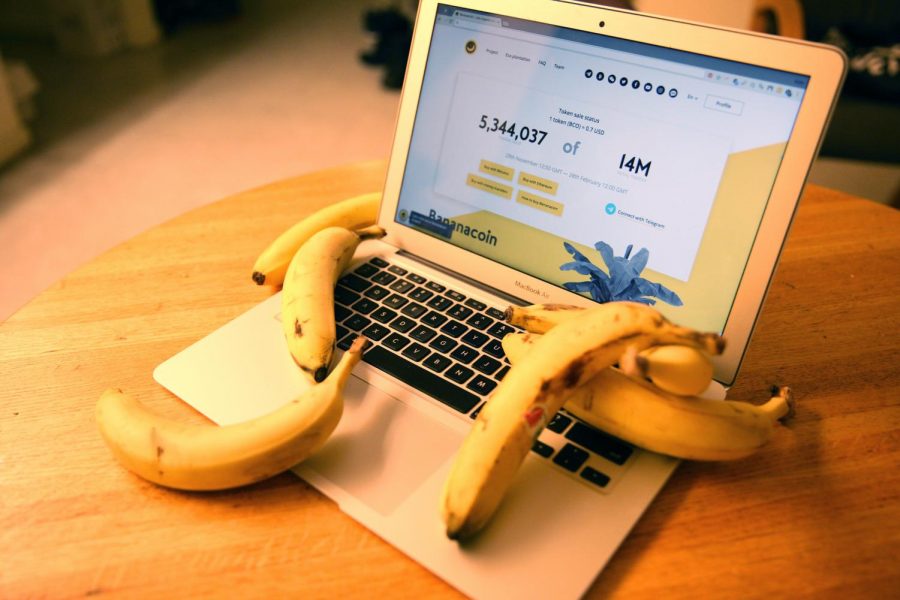Bananacoin — To Invest or Digest?
A laptop displaying the Bananacoin homepage.
February 28, 2018
This cryptocurrency will make you go bananas.
If you’re having a hard time comprehending how cryptocurrencies and bananas are related, don’t fret. A one-sentence definition of the concept is: a cryptocurrency that funds a banana plantation in Laos backed by physical bananas.
The price of Bananacoin — abbreviated to BCO — is tied to the export price of one kilo of bananas. For now, a Banacoin is valued at 70 cents; that’s more than what the Argentine Peso is worth.
Through their initial coin offering, the company is hoping to profit off increasing demand for bananas in China, according to Bananacoin’s website. The company is using a token based on Ethereum to help fund eco-friendly banana plantations in Laos.
Bananacoin promises to invest the money obtained from Banancoin in their banana plantations, increasing what the company can supply and raising the value of BCO. In short, by purchasing BCOs, you’re sponsoring a banana plantation with the hopes that the price of a kilo of bananas will increase.
Gallatin junior Leo Tulchin, co-founder of Trace Capital, described what Banacoin is and provided his own analysis of the project.
“[Bananacoin] is a payment system that leverages the cryptocurrency model to allow investors to quickly and transparently receive returns on their investment,” Tulchin said. “By buying Banancoin, you are essentially crowdfunding the expansion of the creator’s banana farm, with the predicted future price increase of the coin serving as your return.”
NYU Shanghai Business and Finance junior Roberto Noel was not particularly fond of the idea. Amused by the concept, Noel was quick to tear the project apart with simple economic principles.
“If you have low supply and high demand, you have a high price,” Noel said. “But if you say the price of BCO is going to keep going up, then you’re saying that either supply is going to start going down or demand is going to start going up. So Bananacoin is basing their whole assumption on whether the Chinese population is going to grow more or they’re going to want more bananas.”
Stern Professor Aswath Damodaran, professor of Corporate Finance and Valuation was very to-the-point when it came to his stance on the matter. He did not agree that Bananacoin was a profitable investment.
“That is absurd — how can you guarantee that banana prices will be stable or that they will not rise?” Damodaran said. “Not going to work unless you believe in the banana fairy.”
Damodaran does not believe that the cryptocurrency frenzy has gone too far but he also doesn’t think that Bananacoin is a successful business proposal.
“There is a place for a digital currency that is built to be a currency, not a speculative investment or a substitute for gold for paranoid millennials,” Damodaran said.
There is a possibility that Bananacoin got it all wrong. It might be better to eat them rather than invest in them.
Email Oriana Carisa De Angelis at [email protected].

























































































































































